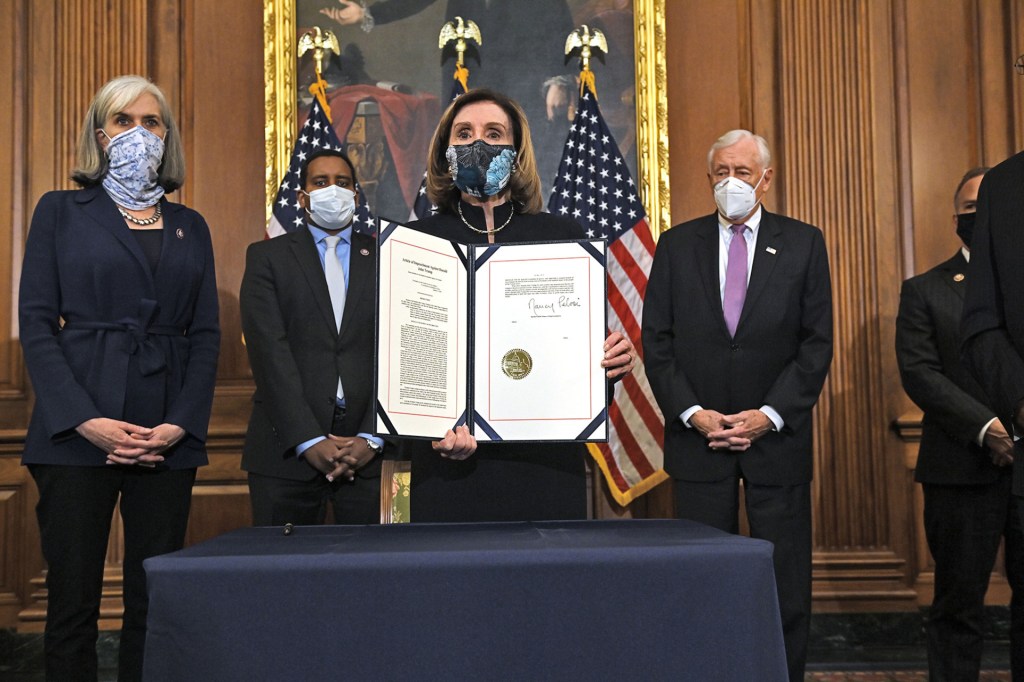TFK Explains: Trump's Impeachment

On January 13, the United States House of Representatives voted to impeach President Donald Trump for a second time.
What is impeachment?
If a U.S. president is suspected of committing “treason, bribery, or other high crimes and misdemeanors,” the Constitution gives the House of Representatives the power to impeach the president, or charge him or her with a crime.
Impeachment does not mean a president is removed from office. That’s up to the U.S. Senate.
Why did the House decide to impeach the president?
The House charged the president with “incitement of insurrection,” or encouraging a violent uprising against the government.
On January 6, a large group of Trump’s supporters violently stormed the U.S. Capitol building, in Washington, D.C. At the time, members of Congress were meeting to officially confirm Joe Biden as the next president.
At a rally earlier that day, Trump repeated false claims that the election had been stolen from him. Federal judges across the country have rejected those claims in court. There has been no evidence of widespread election fraud.
On January 12, the House asked Vice President Mike Pence to remove Trump from office. The 25th Amendment to the Constitution gives him that power if he has the support of two-thirds of Congress. “I do not believe that such a course of action is in the best interest of our nation,” Pence wrote.
The next day, all House Democrats and 10 Republicans voted to impeach the president. The final count was 232–197.
What happens next?
The case will be sent to the Senate for a trial. The Senate will vote on whether or not to convict the president of a crime. The trial is not expected to begin before January 19. Joe Biden will be sworn in as president on January 20.
Why did lawmakers impeach Trump when he is about to leave office?
Lawmakers say the president must be held accountable for his actions. “It is never too late to do the right thing,” says Steny Hoyer, a Democrat representing Maryland.
Even once Trump is no longer president, the Senate can convict him. It can also bar him from ever holding federal office again.
Hasn’t Trump been impeached before?
Yes. Trump was impeached by the House in December 2019. He was charged with abusing his power and blocking Congress from investigating his actions. The Senate voted against removing him from office.
Trump is the first president in U.S. history to be impeached twice.













